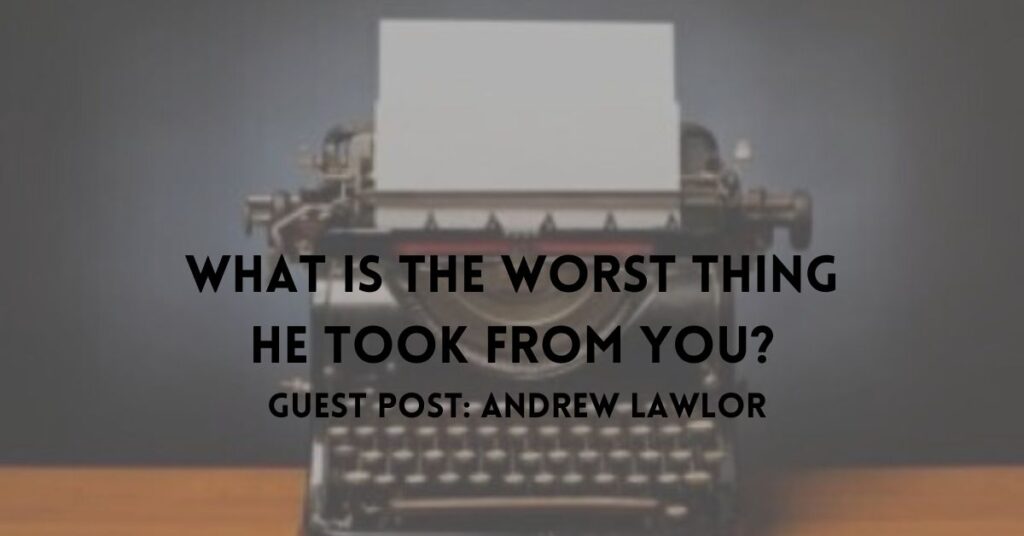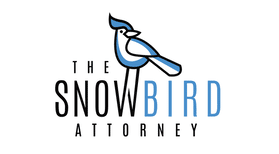
Catastrophic Crash Survivor – Who Are You?
I was wrong. Most of you do not know me personally. If you did, that first sentence would be jarring. Wrong is not something I admit often – or at least often enough. It was early in my catastrophic recovery; I was speaking to a group about learning to live with the changes the crash had imposed on my life. I believe my talk was called “My Nose Runs When I Eat”, which is still true today. I lost a leg, most of an arm, an eye, a bunch of abilities, memories… and I led with a runny nose. The talk went fine, and the host led a quick Q&A. Some questions were interesting, all were respectful, then someone asked:
“What’s The Worst Thing He Took From You?”
The ‘he’ in this question was the driver of the other vehicle, who had been fully at fault for our brief get-together. I took a minute to think, I had to – I’d never been asked that. Looking back, I’m sure the audience was expecting me to cite one of the physical injuries, or maybe something I couldn’t do anymore, like walking, playing ball… I answered truthfully, it was the first thing that came to mind and no amount of thinking could unseat it:
“Purpose”
One word. I said one word and just let it hang there. You could hear a pin drop… and then it was over. I knew I was no Nelson Mandela, but I’d done a decent job, and I knew that answer landed. I didn’t think about that answer again for months, maybe years. I was in some form of therapy every day and I spent the rest of the time resting or enjoying the company of my family and friends. Then the music stopped. Both the frequency and duration of therapy had dropped off – the ‘business of recovery’ had shifted to the ‘business of living’. That’s when I really felt the absence, and that’s when I really felt the anger.
I had dealt with the injuries in stride, my purpose was getting better but it was only a temporary fix. The closer I got to my new steady-state, the wider that chasm grew. I had been declared permanently disabled, the knock-on effects of my TBI made regular employment impossible. For 30-odd years my career and purpose were synonymous, so tightly interwoven it was hard to distinguish one from the other. Then the crash – in an instant they were both gone, like a seven-ten split (I don’t bowl, but I’m told that’s a thing). Yes, I was a husband, father, son, friend – but if someone asked who I was…
Who Am I?
This isn’t a research paper; I’m not going to cite sources. I think it’s fair to say, though, that research has consistently shown strong links between employment status and self-identity (self-esteem, self-worth). Both physical and mental health issues have been shown to be more prevalent among the underemployed and chronically unemployed. Divorce rates, mortality, substance abuse – across wide sets of data the correlation seems fairly consistent.
Admittedly, finances have a lot to do with this, but so do societal factors. We place value on titles, applaud those who sacrifice their personal lives for their professional ones, and keep score with the kinds of cars we drive, the size of our homes. And I did it too, I played the game. But I was on the sidelines now, and I was lost.
Music had always been an important part of my life. I was a fan, a participant. I had been a mediocre but enthusiastic drummer, and no matter how many people reminded me of the drummer from Def Leppard (who got back onstage despite having lost an arm in his own crash), that didn’t really feel like an option anymore. I knew I wasn’t tone-deaf, but I’d never really had a great voice – sort of a combination of Tom Waits, Leonard Cohen and a misfiring lawnmower engine. I loved music though, so I started exploring my options and found salvation in the most unlikely place. I had always viewed School of Rock as a great idea – for children. But as I searched online for ‘adult music lessons’, ‘adult music programs, etc., the local School of Rock kept popping up in the results.
I Found My Calling
A few phone calls later, I sat in on an adult-program rehearsal. The room was filled with people like me, – people who loved music and wanted to be part of something. They were all new to their instruments, relatively. Some were pretty good, others were struggling, some were catastrophic. They all supported each other, everything they said to each other was encouraging, even when I didn’t seem warranted. The energy was infectious, none of them seemed to feel silly or awkward because they were among kindred spirits. They had found their tribe. I joined.
Within weeks I was yelling into a microphone – I was no Eddie Vedder or Robert Plant, but for two hours every Tuesday night you couldn’t have convinced me of that. My ‘band-mates’ were so encouraging – telling me wonderful lies every week that kept me coming back. I’ve heard some recordings from those early days – if I’d actually had a day job, I’d have told myself not to quit it. I kept going though, and slowly I graduated from awful to not-as-awful. Then we got to performance time. The way the program works, we learn a set of songs (often organized around a theme) and rehearse them until it culminates in a live performance – usually in a public forum in front of family and friends. We took the stage, I tortured a dozen songs, the audience clapped, and I was hooked. Music wasn’t my purpose, but it did open my eyes.
Purpose is a very personal thing, and I am not judging how anyone else handles it. But I have figured out what it means to me. What I do for a living no longer defines me as a human being – what I do with my life does. It allows me to feel like a full participant in the human experience, not a spectator.
My Purpose Now Takes Many Forms
I give back – I sit on some boards and committees, I’m a patient advisor on several research panels addressing issues faced by trauma survivors.
I advocate – I am a member of the accessibility advisory board in my city. We address issue that affect people with all forms of disability. For most of my life, I never really thought about disability, then I defined disability by my plight alone. Now I’m starting to comprehend how far-reaching that term is, how challenging life is for so many in our communities. I’m not particularly proud of how self-absorbed I may have been in the past, but I also don’t dwell on it.
I create – I write, I sing, play harmonica. I’ve sung well in front of large (to me anyway) crowds, poorly in front of small ones. I even got to sing in one of Toronto’s most legendary venues – under the same roof where The Rolling Stones and The Police have played. I don’t think I make Mick or Sting worried for their jobs, but when the lights come up and our drummer counts us in, I don’t think my experience is much different from theirs.
I am a Guest Crash Survivor Blogger – a space where I can share my personal catastrophic struggles and meet a deadline in hopes that fellow survivors might find a new perspective.
I was wrong when I said someone took away my purpose. The actions of another may have taken away many things, but not purpose itself. That was something nobody could take away if I didn’t let them.
Andrew Lawlor is a catastrophic motorcycle crash survivor. Since July, 2018 he has drawn on the love and support of his family and his community, working to repair body, mind and soul. Andrew knows everyone’s journey is unique, and hopes that fellow survivors might find a new perspective, or encouragement in the stories he tells. The Crash Support Network is thrilled to announce a collaboration with Andrew as he shares his journey through ongoing contributions to our Crash Survivor Blog.
The Crash Support Network is a unique one-of-a-kind website consisting of an online support group, a crash survivor blog, a quarterly newsletter, “Sharing Our Recovery” as well as highly informative articles. Our website is based on relationship-building and puts the needs of survivors first by creating a helpful resource for victims and survivors of motor vehicle crashes.



